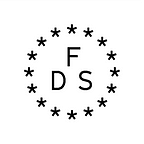Fair Data Principles
V.0.1.1
Last change: Feb 4th 2019
This is a live document and will be continuously updated. Submit your proposals by commenting here:http://bit.ly/fair-data-principles.
Fair Data is based on 9 distinct principles:
0. Your personal data is you, our personal data is us.
1. Zero-data:
Privacy and non-collection of personal data should be the main defaults in all contexts of high data production volumes. If collection of personal data is absolutely necessary, it should be minimal and only for the scope necessary to perform the intended function.
2. Ownership:
All the data related to an individual are part of his/her digital self. Just as organizations can’t own real people they can’t own others’ digital selves. Only individuals can own this data, while organisations can only have access to data, if an individual gives it to them. Data about an individual can’t be recorded only accessed on per need basis, enabling utilisation without appropriation.
3. Control:
The rights to data created about or by an individual are only his/hers. The individual controls the context in which his/her data is produced & processed and how that context is activated.
4. Consensual access:
Individual’s data can only be accessed on the basis of consent. The further use and sharing of data can also only be done with explicit and informed consent, based on clearly stated purposes of how, why, where and how long personal data will be used and stored. The consent must have the option of being equally easy to revoke as it was to give, without any coercion to give it in the first place.
5. Economic benefit & Fair value:
Data is a direct product of an individual’s labour and as such has direct economic value. Its owner must be fairly compensated for the use of this value, if the individual chooses to sell his/her data. The amount of compensation is based on a free agreement by both sides and a transparent, comparable pricing system that doesn’t seek to exploit the other side. This creates benefits for everyone involved in the process. Recognising data as labour is also a prerequisite for a balanced influence (see principle 7).
6. Social good:
Organizations minimise personal data exchange on a need-to-know basis and maximise the social good through exchange and monetisation of anonymised data, that can’t be linked back to the individual. They pursue a set of sustainable development goals set by the UN such as providing new income streams to reduce poverty, provide industry innovation and infrastructure for example by creating new data markets or create new decent jobs & economic growth by responding to new demands etc.
7. Balanced influence:
Organizations allow for the freedom of digital associations inside the organizations’ ecosystems and recognise outside associations. They also recognise these associations as legitimate counterparties when negotiating the rules of use of the associations’ members personal data. This way they enable conditions in which counterbalance to the concentration of power over personal data can be created.
8. Transparency & Accountability
Organisations accessing and processing personal data provide clear, understandable and explainable information on how, why, where and how long they use & store it. The individual must understand the risks, as well as social, ethical and societal consequences of data processing.
Organisations are held accountable to all stakeholders for the safety of information they use and store and provide active channels to deliver and receive relevant information to/from all parties involved. Sustainable personal data processing is embedded throughout the organisation and
ensures ethical accountability in the short, medium and long term. An organisation’s accountability should also apply to subcontractor’s and partners’ processing of data.
9. Ethics by design
Organisations design their IT systems around an ethical treatment of all personal data; ethics can’t be an afterthought. These systems are privacy-oriented, interoperable, accessible and secure. They provide a pleasant experience for end users with clearly visible and easy-to-use privacy controls. Such systems ensure the same level of treatment for everyone that comes in contact, regardless of geographical origin or legal environment.
What is Fair Data Society
Fair Data represents a stand for a more equal distribution of control and value for everyone involved in data production, exchange and processing, with the individual at the center. It is a holistic approach to handling personal data that takes into consideration the individual and to the individual related social and economical aspects. Fair Data Society acknowledges that personal data can only belong to an individual and provides a clear and transparent set of guidelines for organisations to engage in this redefined relationship.
Organisations that respect Fair Data Society principles give an implicit pledge not to seek legal grounds or bypasses to exploit an individual’s lack of legal knowledge just to obtain or retain data that is beyond the initial scope of the data use agreement between an individual and the organisation.
These guidelines also serve as a traffic light for developers that can help steer the design and functionality decisions for (d)apps they want to build.
Why Fair Data Society
As a society we’ve created and embraced high standards of treating individuals with dignity and respect and put clear mechanisms in place to enforce those standards. The time has come to extend this practice beyond our physical selves into the realms of our digital existence.
Fair Data is based on a simple premise that personal data is part of an individual’s self, of his/hers extended mind. With personal data being part of the individual the latter should have the same set of rights to it as he/she has to any other inalienable part of his/hers identity.
Only when we put the individual at the centre can personal data truly bring benefits to everyone, not just the select few.
*The principles in this document draw on the previous works of DataEthics, MyData organisation, World Fair Trade Organisation and Ethical Design Manifesto.
